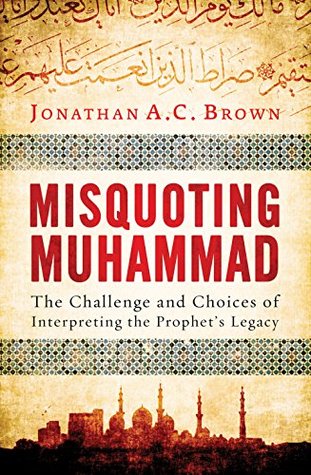More on this book
Community
Kindle Notes & Highlights
Read between
June 1 - November 12, 2020
(Thomas Aquinas admitted relying heavily on Averroes to understand Aristotle).
‘an elucidation of all things,’ as it called itself (16:89).
Important to Abu Hanifa’s method for deriving law from scripture was the concept of Istihsan, or ‘seeking the best.’
‘If you heed most of those in the world, they will lead you astray from God’s path. They do but follow supposition, they do but conjecture’ (6:116).
Man had to have free will, the Mutazila argued, because if man were not able to choose between right and wrong God would be punishing or rewarding him for something outside his control.28
The Sunni solution to the problem of authenticating Hadiths was to try and remove reason from the process, focusing on tracing and evaluating their chains of transmission instead of examining their contents.
‘No bearer of burdens will bear the burdens of another’ (6:164). God would not punish a soul for the actions of others.53
An authenticated Hadith quoted the Prophet teaching that ‘Whoever says “There is no deity but God” will enter Paradise,’ which seems to obviate not only the totality of Islam’s ritual and legal requirements but also the religion’s exclusive claim to salvation as a whole. It is thus no surprise that the early scholar and teacher of Malik, Zuhri, explained
that the Prophet had said this in the early days of his mission before the pillars of prayer, fasting, charity and other laws had been revealed.59
Shafi‘i was right, it seems, in declaring that consensus exists only on the basics of Islamic dogma and law, not on its details.
The Hadith, he asserted, blatantly contradicted the
holy book. In the Qur’anic pericope of King Solomon and the Queen of Sheba, the queen rules over a prosperous and powerful kingdom
Yet I have found no instance of anyone criticizing the Prophet’s marriage due to Aisha’s age or accusing him of pedophilia until the early twentieth century.
Written knowledge is passive before the reader and unable to defend itself against misunderstanding.
As Luther had so stridently objected, however, tradition does not just preserve. The carriers of tradition are also its subtle sculptors, shaping it to fit the needs of changing times and inevitably gathering up into its folds the tacit assumptions of community and culture.
Ibn Rushd believed that different audiences should be addressed with different types of proof or methods of argumentation.
As Ibn Rushd and Aristotle before him insisted, rhetoric was the tool that the elect employed to move the masses toward what benefited them and away from what harmed them.


